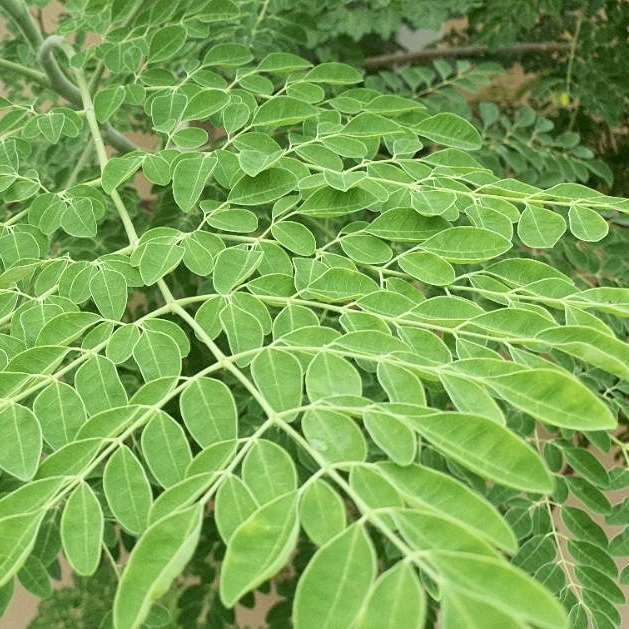Feature
Wole Soyinka: Tribute to a Legend @90

By Bonaventure Melah
Akinwande Oluwole Babatunde Soyinka simply known across the globe as Wole Soyinka clocked 90 years on Saturday July 13, 2024.
The Nigerian playwright, novelist, poet, essayist and revolutionist was born on July 13, 1934. He was awarded the 1986 Nobel Prize in Literature, becoming the first Sub-Saharan African and only Nigeria so far to be so awarded in that category. He dedicated the award to Nelson Mandela during acceptance speech.
Soyinka attended Government College and University College both in Ibadan and the University of Leeds in England. After studying in Nigeria and the UK, he worked with the Royal Court Theatre in London. He went on to write plays that were produced in both countries, in theatres and on radio. He has been active in Nigeria’s political development from the campaign for independence till date.
In 1965, he seized the Western Nigeria Broadcasting Service studio and broadcast a demand for the cancellation of the Western Nigeria Regional Elections.
In 1967, during the Nigerian Civil War, he was arrested by the federal government and put in solitary confinement for volunteering to be a non-government mediating actor. The government accused him of supporting the Biafran side.
Soyinka has been a strong critic of successive governments in Nigeria and African at large and had trouble with Nigeria’s military dictators, as well as other political tyrannies, including the Mugabe regime in Zimbabwe. During the regime of General Sani Abacha-1993–98), Soyinka escaped from Nigeria on a motorcycle via the “NADECO Route”. Abacha later proclaimed a death sentence against him “in absentia.” With civilian rule restored to Nigeria in 1999, Soyinka returned to the country.
Soyinka was a Professor of Comparative literature from 1975 to 1999 at the Obafemi Awolowo University and was made Professor Emeritus in 1999.
In United States, he first taught at Cornell University as Goldwin Smith professor for African Studies and Theatre Arts from 1988 to 1991 and then at Emory University, where in 1996 he was appointed Robert W. Woodruff Professor of the Arts.
Soyinka has written and published hundreds of works, including drama, novels, essays and poetry. He is a visiting professor in many universities all over the world.
A descendant of the rulers of Isara, Soyinka was born the second of his parents’ seven children. His father, Samuel Ayodele Soyinka was an Anglican minister and the headmaster of St. Peters School in Abẹokutdoma. His mother, Grace was a political activist within the women’s movement in the local community. Although born and raised by Christian parents of Anglican faith, Soyinka became an atheist later in life.
While at university, Soyinka and six others founded the Pyrates Confraternity, an anti-corruption and justice-seeking student organisation, the first confraternity in Nigeria.
In his 90 years on earth, Soyinka has won hundreds of awards, nationally and internationally for his numerous works and has also suffered attacks, detentions and imprisonments for his agitation for a better society.
In addition to drama and poetry, he has written two novels, The Interpreters (1965) and Season of Anomy (1973), as well as autobiographical works including The Man Died: Prison Notes (1972), and Aké (1981), a memoir about his childhood. Myth, Literature and the African World (1975) is a collection of Soyinka’s literary essays.
Soyinka has been married three times. He married British writer Barbara Dixon in 1958; Olaide Idowu, a Nigerian librarian, in 1963; and Folake Doherty, his current wife, in 1989.
This is wishing the Great Lion happy 90th birthday and many more years lived in health and happiness.
Bonaventure Phillips Melah is the Publisher of the African Leadership Scorecard Magazine and Nationwide Reports online newspaper. He is the CEO of THE BEAUTIES OF NIGERIA TV
0803602975. bonamelah123@gmail.com
Feature
Records: Text of Prof. Charles Anosike’s Presentation at the Public Hearing on Amendment of NiMet Act, Tuesday, July 22, 2025

Protocol:
Honourable Chairman of the House of Representatives Committee on Aviation Technology, Honourable Members of the Committee, Honourable Minister of Aviation and Aerospace Development, Esteemed delegation from the Economic Community of West African States (ECOWAS), whose presence today reaffirms the regional significance of strengthening weather and climate services in Nigeria Distinguished representatives of the World Meteorological Organization (WMO), our valued global partner in advancing meteorological science, capacity development, and international cooperation Former Directors-General/CEOs of NiMet, Heads of Sister Parastatals, Respected Stakeholders, Representatives of the National Unions Distinguished Guests, Ladies and Gentlemen, Good morning.
It is both an honour and a privilege to appear before you today in my capacity as the Director General and Chief Executive Officer of the Nigerian Meteorological Agency (NiMet), to present and speak in support of the Bill for an Act to Amend the Nigerian Meteorological Agency (Establishment) Act No. 29, 2022 (the Bill). Background The Nigerian Meteorological Agency (NiMet) is the statutory authority responsible for providing weather, climate, and early warning services in Nigeria.
NiMet is also responsible for regulating the standard of non-aeronautical meteorological activities and operations across the country. NiMet’s mandate spans the full spectrum of meteorological services, including inter alia weather observation and forecasting, weather and climate monitoring, aviation meteorology, marine meteorology, and agrometeorology. Specifically, the services rendered by the Agency include but are not limited to the following: • Impact-based Forecasts • Historical Records of rainfall amount, minimum and maximum temperature, wind speed and direction, air temperature, and relative humidity • Rainfall Intensity duration & Frequency • Historical records of sunshine duration, potential evaporation • Historical records of Station level pressure and mean sea level pressure 1 • Soil temperatures, soil moisture and other climatic parameters • Marine weather forecasts for inshore waters and coastal waters • OPMET data • Seasonal Climate Predictions • Crop calendars and farmers guide • Climatological yearbook • Maps, charts, tables • Daily, decadal, and monthly weather bulletins • Daily, decadal, and monthly monitoring of construction sites • Site pre-study • Special weather bulletins and forecasts.
It is therefore no surprise that weather and climate have a direct and far-reaching impact on virtually every sector of the Nigerian economy – aviation, maritime, agriculture, construction, oil and gas, telecommunications, and disaster risk reduction, among others.
Although the NiMet Act was amended as recently as 2022 to strengthen the Agency’s legal and operational framework, the realities of implementation have revealed some gaps that hinder its full effectiveness. In particular, challenges remain in the areas of cost recovery, rulemaking, and compliance & enforcement.
We must acknowledge that no law, however well-conceived, can anticipate every future challenge at the time of enactment. Legal frameworks must therefore remain flexible and responsive to evolving needs, especially in rapidly changing, data-driven sectors such as meteorology. Against this backdrop, it is pertinent to note that NiMet has made significant progress over the years in enhancing the quality, accuracy, and reach of its services. Nevertheless, to keep pace with the growing demands of Nigeria’s dynamic economy and to ensure the long-term sustainability of its operations, it is imperative that the Agency be equipped with a strengthened legal framework that addresses existing gaps and aligns with both national development priorities and international best practices. Purpose of this presentation.
The purpose of this presentation is simply to justify the amendments proposed in the NiMet Bill, 2025. Particularly, those geared towards the establishment of a cost recovery framework that ensures the sustainable delivery of critical meteorological services to sectors such as marine, construction and telecommunications. These amendments are intended to: • Strengthen national meteorological infrastructure and resilience; • Enhance safety, efficiency, and planning across sectors; • Ensure that users of specialized meteorological services in the stated sectors pay costs associated with the provision of such services.
2. While the current Act (Sections 7(1)(l) and 7(2)) empowers NiMet to issue meteorological information and to impose cost and sustainability recovery charges, it only provides a detailed framework for cost recovery within the aviation sector. There is currently no equivalent mechanism for non-aeronautical sectors, resulting in unrecovered operational costs, increased pressure on government funding, poor infrastructural development and limited-service coverage. It is also important to clarify that International best practices support cost recovery from specialized services. Both WMO Resolution 40 and Resolution 25 endorse cost recovery from commercial and non-core public good services. Focus of the Proposed Amendment The Bill seeks to address key gaps in the current legislation and strengthen NiMet’s operational capacity in four critical areas: a. Cost Recovery b. Rule Making c. Compliance & Enforcement d. Designation of Directors A). COST RECOVERY To provide context, it is important to briefly restate NiMet’s mandate in this area.
The NiMet Act designates the Agency as the sole authority responsible for prescribing and issuing meteorological data and information for all sectoral activities in Nigeria (Section 7(2) of the NiMet Act). It also authorizes NiMet to charge cost and sustainability recovery fees for services rendered to users (Section 7(1)(l) of the NiMet Act). Within the framework of the World Meteorological Organization (WMO), cost recovery refers to the process utilized by national meteorological services to recover costs incurred in the provision of meteorological services. This typically entails charging fees for access to meteorological data, products, or services that exceed the scope of the standard public weather services generally offered by them.
The statutory responsibility of NiMet under Section 7(2) of the Act extends across key sectors of the economy, including aviation, marine and blue economy, construction, and telecommunications. However, despite these broad obligations, the current Act lacks a clear financial framework to enable efficient and full recovery of the costs associated with delivering these essential services. To address this gap, the NiMet Bill introduces a revision to Section 16, establishing more explicit and enforceable provisions for cost recovery—especially for sectors heavily reliant on meteorological data, such as maritime, construction, and telecommunications. Notably, the proposed cost recovery model is not unprecedented. In the aviation sector, cost recovery for aeronautical meteorological services is already standard practice. Similarly, international models support this approach: the UK Met Office receives strategic funding from key sectors like maritime and defence; the U.S. National Weather Service is partially funded 3 through cooperative agreements with user agencies; and both ICAO and WMO frameworks advocate for cost recovery as part of sustainable infrastructure support.
The Bill specifically proposes a structured cost recovery mechanism targeting the following sectors: a. Marine & Blue Economy The central issue is not whether the Marine and Blue Economy sector utilizes meteorological data -it clearly does- but rather how to ensure a structured and sustainable mechanism for recovering the costs of providing these vital services.
The NiMet Act explicitly empowers the Agency to recover such costs, as outlined in Sections 7(1)(l), 7(2)(h), and 16(1)(h)(i)(ii), but falls short of detailing the mechanisms for effective cost recovery. As a major consumer of meteorological data, the Marine and Blue Economy sector relies heavily on accurate and timely weather information for safe navigation, efficient operations, and environmental protection. In alignment with Section 7(2)(h) of the Act and Chapter V, Regulation 5, Sub Regulation 4 of the International Convention for the Safety of Life at Sea (SOLAS), 1974, which mandates member states to support the collection and dissemination of meteorological data for maritime safety, NiMet has consistently contributed to this sector through the delivery of specialized marine meteorological services. In implementing an MoU signed with the Nigerian Maritime Administration and Safety Agency (NIMASA), NiMet deployed marine meteorological observation stations and developed a robust system for delivering critical marine forecasts and products across Nigeria’s territorial waters. These include 24-hour forecasts on wind speed and direction, sea state, tides, visibility, and other weather conditions relevant to maritime operations. Key coverage areas include Calabar (Eket), Port Harcourt coastal waters, Warri, Koko, Lagos, and formerly Aiyetoro. Additionally, under a collaboration with the National Inland Waterways Authority (NIWA), NiMet has installed Marine Automatic Weather Observation Systems (AWOS) in Lokoja, Calabar, and Warri, with on-going installation at Koko. Despite the scope and importance of these services, there is currently no formal cost recovery framework in place for the marine sector, unlike the aviation sector. In aviation, NiMet receives a portion of statutory charges collected by relevant agencies such as ticket and cargo levies through the Nigerian Civil Aviation Authority (NCAA), en-route and overflight charges from the Nigerian Airspace Management Agency (NAMA) and landing fees via the Federal Airports Authority of Nigeria (FAAN).
This arrangement has proven effective in ensuring consistent, high-quality meteorological services critical to air safety. It is imperative that a similar mechanism is deployed for the Marine and Blue Economy sector to ensure long-term sustainability, service expansion, and continuous improvement in safety and operational efficiency. In line with the legal provisions under Sections 7(1)(l), 7(2)(h), and 16(1)(h)(i)(ii) of the NiMet Act, the following cost recovery charges are proposed from the statutory revenues of key agencies within the sector for the provision of marine meteorological services, mirroring existing models under Section 16(1)(e)-(g) for the Aviation sector: 4 • NIMASA: 10% of the 3% gross freight on all international inbound and outbound cargo. • NIWA: 3% of total revenue from harbour and river guide dues/rates. • NPA: 5% of revenue from harbour/port charges and pilotage dues.
These proposed contributions will establish a fair and sustainable model for financing meteorological services that support the Marine and Blue Economy thereby enhancing maritime safety and economic efficiency. b. Construction Works and Telecommunications NiMet’s statutory mandate, as articulated in Section 7(2)(e) of the NiMet Act, grants the Agency exclusive authority to provide meteorological data and information critical to the construction sector. This mandate extends to all construction-related activities, including government and private projects involving buildings of four storeys and above, roads, dams, telecommunications infrastructure, and related developments. Section 16(1)(h)(ix) further recognizes that NiMet’s funding should include fees derived from providing meteorological services for these construction and infrastructure projects. Coupled with Section 7(1)(l), which empowers NiMet to charge cost recovery and sustainability fees, there is a clear legal basis to establish a structured funding mechanism for this sector. To ensure sustainable delivery of specialized meteorological services, it is proposed under the NiMet Bill that a cost recovery charge of 1% of the tax-exclusive cost of construction works contract in respect of all government and non-government buildings, roads, dams, telecommunication masts and other related projects in Nigeria, be established under the Act, for the provision of meteorological information.
This charge would be deducted at source and remitted directly to NiMet, streamlining revenue collection and guaranteeing the Agency can recover operational costs effectively. Such a mechanism will enable NiMet to maintain and enhance its critical support services, providing accurate weather and climate data that improves safety, project planning, and risk management across Nigeria’s rapidly growing construction and telecommunications sectors. B). RULEMAKING We are also proposing an amendment to Section 43 of the NiMet Act to grant the Agency express authority to develop, issue, and revise regulations, rules, and guidelines independently—without requiring further external approval.
This approach mirrors the regulatory autonomy granted to the Nigerian Civil Aviation Authority (NCAA) under the NCAA Act, 2022. This amendment is critical for eliminating the delays and administrative bottlenecks currently associated with the approval process. To ensure transparency, accountability, and stakeholder engagement, the proposed amendment includes a provision mandating the Agency to consult relevant stakeholders during the rule-making process.
Additionally, it introduces the power to impose penalties for non-compliance, reinforcing the enforceability of NiMet’s regulations. 5 Granting NiMet this regulation-making autonomy is essential for timely and effective governance in a sector that is both data-driven and highly responsive to climate disasters. C). COMPLIANCE AND ENFORCEMENT The Bill proposes an amendment to Section 30(2) to classify the failure to pay or remit any fee, levy, or charge prescribed under the Act or any regulation, rule, or order made pursuant to it, as an offence.
This amendment is essential to strengthen the enforcement framework of the Act and ensure greater compliance with its financial provisions. In support of this amendment, we wish to respectfully request the inclusion of an additional clause in the Bill, stating that payment of any stipulated fine shall not absolve or substitute for the payment of outstanding sums owed to the Agency.
This ensures that penalties serve as a deterrent without undermining the Agency’s right to recover the actual fees or charges due. D). DESIGNATION OF DIRECTORS AS EXECUTIVE DIRECTORS In the Bill, we are also proposing that the Directors who lead the various directorates within the Agency be formally designated as Executive Directors.
These individuals play a central role in the day-to-day management and strategic operations of the Agency, bearing significant administrative and technical responsibilities. REQUEST FOR REMOVAL OF PROVISIONS ON THE NIGERIAN METEOROLOGICAL AGENCY DEVELOPMENT FUND (NIMDEF) FROM THE BILL As part of this presentation, I wish to respectfully request that all provisions relating to the establishment of the Nigerian Meteorological Agency Development Fund (NIMDEF) be expunged from the amendment bill.
These provisions were inadvertently included and do not accurately reflect the Agency’s current strategic or legislative priorities. Retaining them may create confusion or misalignment with the intended objectives of the proposed amendments. We therefore recommend their complete removal to ensure the Bill remains focused, coherent, and consistent with NiMet’s statutory mandate and operational framework. REQUEST FOR INCLUSION OF COST RECOVERY STRUCTURE FOR THE AGRICULTURAL SECTOR IN THE BILL I would also like to propose the inclusion of a detailed cost recovery structure for the Agricultural and Food Security sector within the NiMet Bill. Pursuant to Section 7(2)(d) of the NiMet Act, 2022, the Agency is designated as the sole authority responsible for prescribing and issuing meteorological information and data to the 6 agricultural and food security sector.
Over the years, NiMet has consistently provided essential climate and weather-related services that enhance agricultural planning, insurance operations, research, risk management efforts and food security. Through the provision of timely, accurate, and location-specific weather and climate information, including early warnings and Seasonal Climate Predictions (SCP), NiMet plays a central role in improving agricultural productivity. These forecasts are downscaled and disseminated to support evidence-based decision-making, particularly in addressing flood and drought risks, enhancing food security, and strengthening disaster preparedness.
Consequently, NiMet’s services contribute significantly to reducing crop losses, boosting yields, and building resilience against climate variability. To ensure the continued sustainability and quality of these services, Section 7(1)(l) of the NiMet Act authorizes the Agency to recover costs from users who directly benefit from its meteorological services across the agricultural value chain. Specifically, this request seeks to recover cost of data and information provided for agricultural insurance purposes. Meteorological data is fundamental to agricultural insurance, forming the basis for product design, premium calculation, real-time monitoring, and post-event verification. NiMet provides both historical datasets and real-time meteorological services that enable and support these critical functions. Accordingly, having regard to the provisions of Sections 7(1)(l), 7(2)(d), and 16(1)(h)(ii) of the NiMet Act, and drawing from the cost recovery framework already established in the Act for the aviation sector under Sections 16(1)(e)-(g), the following cost recovery provision is hereby proposed: a. “5% charge on all premiums collected by the Nigerian Agricultural Insurance Corporation (NAIC) from policy holders, for the provision of agrometeorological services”.
The ‘premium from policy holders’ is part of the funds of the NAIC under the Nigerian Agricultural Insurance Corporation Act, CAP. N89, LFN, 2004. The Act establishes an agricultural insurance scheme for farmers that cover a variety of risks, including those caused by lightning, windstorms, floods, and droughts – areas directly influenced by meteorological conditions (Sections 6 and 8). b. “5% of the total premiums collected annually by agricultural insurance providers and related entities as a cost recovery fee for the provision of agrometeorological data and information.” c. The amount stipulated in items (a) and (b) above shall be remitted directly to NiMet’s designated account on a quarterly basis, not later than 15 days after the end of each quarter.
The remittance shall be accompanied by a detailed report of total premiums collected and the basis for the computation of the remitted sum.
CONCLUSION
Honourable Members, The NiMet Bill, 2025 is principally about fulfilling the statutory responsibilities of the Agency and ensuring attendant costs for services rendered are duly recovered as envisaged by the Principal Act. This is crucial in order to ensure the Agency is self-sustaining, efficient, and responsive to national development needs, in line with its Mandate.
We therefore respectfully request that the amendments proposed in the NiMet Bill be approved.
Thank you, Honourable members, ladies, and gentlemen for your attention. We are happy to provide further details or respond to any questions you may have.
Prof. Charles Anosike Director-General/CEO NiMet
Feature
Why you should eat ‘the tree of life’ also known as Moringa

Moringa (Moringa oleifera is found in many parts of Nigeria but much more in the northern part of the country and the middle belt.
Also referred to as the drumstick, horseradish, or ben oil tre, Moringa is a medicinal and nutrient-rich plant originally said to be to from native India.1 It’s also common in other subtropical climates, including Florida. The Moringa tree is sometimes called the “tree of life” for its supposed ability to reduce pain and the risk of heart disease, ulcers, and other chronic health conditions.2
In traditional medicine, people use almost all parts of the tree, including the leaves, bark, roots, and sap.
The moringa plant has grown in popularity in the United States as a leaf powder, supplement, and skincare ingredient.
Rich in Antioxidants
Antioxidants help counteract oxidative stress. Chronic oxidative stress is the imbalance of the amount of antioxidants and free radicals in your cells. It is linked to the development of chronic diseases like cancer, heart disease, and diabetes.
The moringa tree is full of phenolic compounds, which are molecules with anti-inflammatory properties. Flavonoids, phenolics, and carotenoids are phenolic compounds in parts of the moringa tree. Researchers have found phenolic compounds like flavonoids may promote immune health, prevent chronic disease, and fight inflammation.
Prevents Malnutrition
One review found that the moringa plant can help address malnutrition, which occurs when you don’t get enough or too many nutrients or energy. Moringa leaves and seeds contain vitamins, minerals, and fats that help prevent malnutrition. The plant is also rich in vitamin C, vitamin A, and fiber.
A small study found that moringa leaf powder increased the body mass index (BMI) among people with human immunodeficiency virus (HIV) undergoing antiretroviral therapy. BMI is a biased and outdated metric that uses weight and height to make assumptions about body fat and health. However, these study results suggest that moringa can improve the nutritional intake and status of some people with HIV. More research is needed.
May Reduce Blood Sugar
In one small study, people with diabetes who took 20 grams of moringa leaf powder a day found that the supplement had a small effect on their blood sugar control. However, there is not enough research to know for sure how effective moringa is at controlling blood sugar.
May Relieve Symptoms of Menopause
Moringa may help to relieve menopause symptoms such as hot flashes, night sweats, and anxiety. Menopause happens when menstruation and ovulation stop, which typically happens between the ages of 45-50.
According to a small study, moringa may help decrease the severity of hot flashes because of the plant’s effect on oxidative stress. When there is an imbalance of antioxidants and free radicals in your body, you may experience hot flashes. Oxidative stress can also increase night sweats. The participants saw small improvements in the amount of antioxidants in their bodies, which might be associated with a decrease in the severity of their menopause symptoms.
Anti-Aging Effects
Moringa has been increasing in popularity as a skincare ingredient. According to research, moringa extracts have anti-aging properties for your skin. Creams containing at least 3% extract from moringa leaves help improve your skin’s smoothness.
Studies found that moringa cream also improves skin elasticity. High amounts of vitamins C and E in the moringa plant aid in revitalizing your skin to get that glow you may want. However, more research is needed to know how much of an effect moringa cream may have on your skin over time.
Research suggests that moringa oil may also treat eczema and inflammation on your skin. Most of these benefits are thanks to its abundant antioxidant profile, which reduces inflammation and prevents cellular damage.
Moringa seeds are also used in skin products to help with scarring, acne, and pigmentation. Its vitamins and minerals have anti-aging properties and benefit skin elasticity.
Nutrition
Moringa leaves and pods are commonly eaten in recipes in parts of India and Africa, but the powdered form is more common in the U.S.1 Each 2-teaspoon serving (4 grams) of moringa powder has the following nutrients:
Calories: 15
Fat: 0 grams (g)
Sodium: 0 milligrams (mg)
Carbohydrates: 2 g
Fiber: 1 g, or 4% of the daily value (DV)
Added sugars: 0 g
Protein: 1 g
Iron: 4.8 mg, or 25% of the DV
Calcium: 100 mg, or 8% of the DV
Moringa seeds have a much higher fat and protein content than the powdered form of moringa. The seeds are full of monounsaturated fat, which can benefit your overall heart health.
Moringa as a Supplement
You can find the moringa plant in capsule, tablet, or powdered form. In addition to taking it as a supplement on its own, moringa may also be added to other supplements to reduce inflammation in your body. The antioxidant benefits in moringa plants make it ideal as a supplement. Still, research on the benefits of moringa supplements in humans is extremely limited.
Risks
While eating moringa leaves and seeds is generally safe, some people experience side effects from consuming the plant. It’s important to be mindful of how much moringa you consume as a supplement or powder. Researchers have found that ingesting too much moringa can cause digestive complications like diarrhea. Taking a high dose of 70 grams or more of moringa in supplement or powder form can put you at risk for toxicity.
Be cautious of what part of the moringa tree you consume. Moringa root and root bark contain alkaloids (natural compounds that protect plants) that can be toxic. Ingesting toxic amounts of alkaloids can cause symptoms like nausea, vomiting, and, in extreme cases, paralysis.
Eating only the leaves, fruit, and seeds of the plant can lower your chances of experiencing harmful side effects. Be mindful of the foods and medications you take while consuming the moringa plant. Drugs you may want to avoid while ingesting it include:
Antidiabetic drugs
Cytochrome P450 3A4 substrates, drugs used to treat HIV
Levoxyl (levothyroxine) to treat hypothyroidism (underactive thyroid)
Viramune (nevirapine) to treat HIV
P-glycoprotein substrates, drugs used to treat heart conditions like arrhythmia and angina, as well as HIV
Taking moringa as a supplement or powder may also be unsafe for people who are pregnant. Some research suggests that moringa helps with milk production, but there is not enough research to confirm its effectiveness.
People with hypothyroidism should also use caution since moringa might reduce thyroid hormone levels.
Tips for Consuming Moringa
The moringa plant has an earthy flavor that can be delicious in sweet or savory dishes. Here are some options for adding moringa to your diet:
Add moringa powder to soups and stews
Blend moringa powder into oatmeal or smoothies
Eat moringa pods when they’re immature for a tender texture
Use moringa powder in your favorite pasta recipe
Make tea with moringa leaves.
-

 News2 years ago
News2 years agoBreaking: Tinubu’s authentic ministerial nominees
-

 News9 months ago
News9 months agoSenate to speed up conclusion of Nigeria Forest Security Service Bill
-

 News2 years ago
News2 years ago“Anytime we want to kill terrorists, President would ask us to take permission from France but they were killing our soldiers-” Niger Republic coup leader
-

 News2 years ago
News2 years ago“I’m leaving the Catholic church because Bishop Onah is oppressing me,” says Okunerere
-

 News2 years ago
News2 years agoRadio Nigeria’s veteran broadcaster Kelvin Ugwu dies three months after retirement from service
-

 News2 years ago
News2 years agoDokpesi and the Gazebo Mystique
-

 News2 years ago
News2 years agoTsunami: Tinubu orders dissolution of managements, boards of MDAs, to sack all Buhari’s political appointees
-

 News2 years ago
News2 years agoPersons against Allagoa’s reforms behind protests at NSITF
